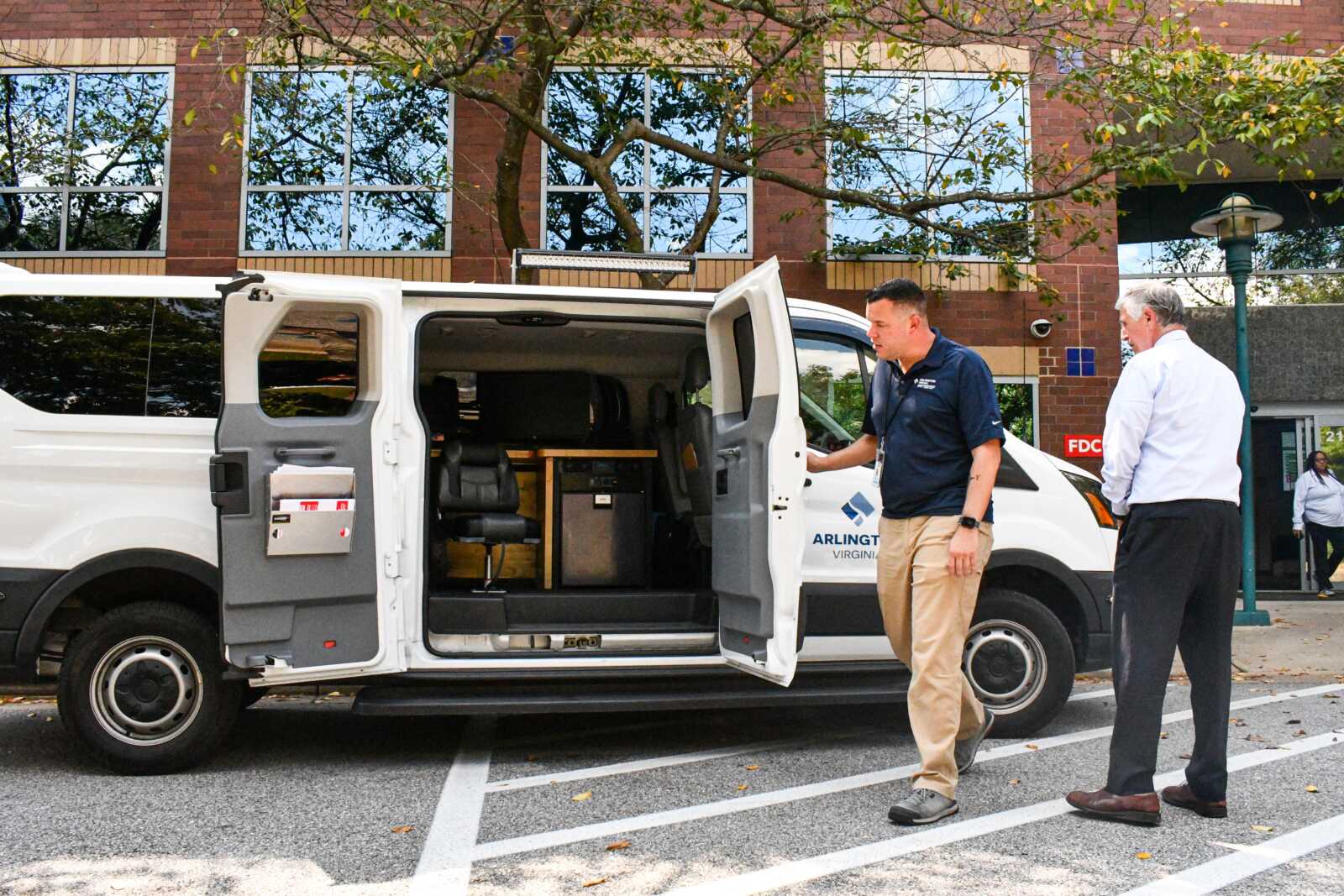This regularly scheduled sponsored Q&A column is written by Eli Tucker, Arlington-based Realtor and Arlington resident. Please submit your questions to him via email for response in future columns. Video summaries of some articles can be found on YouTube on the Ask Eli, Live With Jean playlist. Enjoy!
Question: Is there anything other than the increasing Fed Funds Rate that is driving mortgage rates higher?
Answer: This week we continue the effort to get educated on mortgage rates and products so you can be smarter, more informed consumers. Higher mortgage rates are being driven by the increases in the Fed Funds Rate, which is the storyline that commands news headlines, but that’s not the only thing driving your interest rate up.
To learn more about what’s happening beyond the headline news, I interviewed First Home Mortgage’s “market maker” James Baublitz (official title, VP of Capital Markets). Let’s jump right in….
ET: What is your role at First Home Mortgage?
JB: I work as Vice President of Capital Markets for First Home Mortgage Corporation. In this role I oversee the different loan programs we offer to borrowers, the mortgage rates we offer daily and the trading strategy we use to manage risk for the organization. This involves frequent communication with broker/dealers and monitoring market developments both intraday and throughout the year.
ET: Other than the highly covered Fed interest rate increases that have increased the cost of borrowing for everything, what else has caused actual mortgage rates to increase so much?
JB: The Federal Reserve lowered the Fed Funds Rate all the way to a range of 0.00%-0.25% to defend the economy in the wake of the COVID-19 pandemic. Since rates were effectively at 0.00% they couldn’t go lower, but the Fed wanted to stabilize the economy further given the unprecedented macroeconomic uncertainty the pandemic caused. So, the Fed reinstated the so-called Quantitative Easing program where the Fed began buying mortgage-backed securities, the bonds backed by the mortgages many of us hold.
Supply and demand — the Fed materially increased demand for mortgage assets so prices went higher which meant rates (which move inverse to price) went much lower. Fast forward to today, the Fed never intended to remain a buyer of MBS in perpetuity and earlier this year they announced they would stop their purchases. As a result, demand decreased significantly and the rates they helped drive dramatically lower increased.
ET: Do you expect the Fed to return to buying mortgages to help bring mortgage rates down and prevent a housing crisis?
JB: It’s important to note that the Fed views their purchases of mortgage assets as an extraordinary measure done in the wake of only the most concerning economic environments. The Fed seeks to implement policies that foster full employment in the economy and a modest rate of inflation – 2% – over the long haul. The Fed does not try to ensure mortgage rates are at a certain threshold, however.
It’s also worth noting that extraordinarily low mortgage rates contribute to inflation in the form of much higher home price appreciation — the general idea being that a buyer might be willing to stretch to pay more than asking prices if their financing costs are low enough. We all certainly saw that in the bidding wars in our local markets the past couple years!
With this in mind, Fed officials have previously pointed to very hot housing markets as a cause for concern and see more normalized housing markets as a good thing. Remember, their concern is price stability, not dramatic increases in home prices.
ET: Mortgage rates generally follow a predictable spread above the 10yr treasury bond, but we’ve seen this spread increase significantly over the last 6 months of rapidly increasing rates, why is that?
JB: Markets don’t like uncertainty, and mortgage markets especially don’t like volatility. Big picture, we’re phasing out of a paradigm where the Fed was the main buyer for mortgage assets to a situation where they are on the sideline. The traditional buyers of mortgage assets — commercial banks, money managers and foreign investors have big shoes to fill when it comes to replacing Federal Reserve buying activity.
The multi-billion-dollar question here is — why? There is no shortage of answers ranging from volatility resulting from the war in Ukraine, to leverage and margin concerns from US money managers, to currency fluctuations in markets like Japan. My two cents, however, is that big changes take time.
We’re moving from an environment where the Fed provided clear signals to market participants that rates were going lower. In the face of all this uncertainty following the Fed’s exit and the macroeconomic events I mentioned the traditional buyers of mortgage assets are being selective and waiting until they have more certainly to buy in bulk.
It’s the same as any of us when we think about investing personally: the wider the range of potential outcomes, the more potential that our return will vary, the higher overall return we will require. In the mortgage market that means rates need to be higher. They have big shoes to fill — depending how you define it; the Fed was buying something on the order of 30-40% of newly issued mortgages. The Fed exiting the mortgage-purchasing business is a big change and like I said, big changes take time.
ET: Major organizations like the Mortgage Bankers Association, Freddie/Fannie, and National Association of Realtors have recently issues revised interest rate forecasts that vary widely. How should consumers look at these forecasts and use them for planning purposes?
JB: Each of these groups put a great deal of time into the projections, but they are just that, projections. My advice to prospective borrowers is to use these projections as loose inputs in your planning process, but remember to focus on the house and make sure you’re comfortable with the major decision that is homeownership as a whole.
It’s no secret rates are higher today than they have been in the past few years but they remain low by nearly any historical standard. If rates decline, refinancing is certainly easier today it has been in years past. If rates remain the same or move higher in the future, today’s rates will naturally look better. Either way, take the time to find the right home for you and your family.
ET: Thank you very much for your time and thoughtful answers James. We appreciate the expertise you and First Home Mortgage have provided today!
If you’d like to discuss buying, selling, investing, or renting, don’t hesitate to reach out to me at [email protected].
If you’d like a question answered in my weekly column or to discuss buying, selling, renting, or investing, please send an email to [email protected]. To read any of my older posts, visit the blog section of my website at EliResidential.com. Call me directly at (703) 539-2529.
Video summaries of some articles can be found on YouTube on the Ask Eli, Live With Jean playlist.
Eli Tucker is a licensed Realtor in Virginia, Washington DC, and Maryland with RLAH Real Estate, 4040 N Fairfax Dr #10C Arlington VA 22203. (703) 390-9460
Recent Stories

For Immediate Release
Progress for All Announces Inaugural Black Men Vote Virtual Town Hall
Date: April 19, 2024
Contact: Marc M. M. Peters

The Award is available to recent high school graduates and non-traditional students (see the application for more details). Each recipient may be awarded up to $20,000. Applicants are required to submit an online application form as well as a short video application.
The applicant must be an Arlington resident pursuing a career or technical education accredited program, within a high-growth career, that will be completed within two years.
The careers and programs include, but are not limited to:
-
Audio, Video, and Sound Engineering Technicians
-
Broadcast Technicians
-
Commercial Drivers
-
Culinary Arts
-
Early Childcare Education
-
Healthcare
-
Information Technology and Computer Science
-
Manufacturing and Skilled Trades (including welding, auto and aviation mechanics and technicians)
-
Public Safety
ACFCU’s Free Homebuying 101 Webinar: Steps to Getting Pre-Approved
Are you ready to jump into homeownership, or have you started considering it but don’t know where to start?
Financial preparation is key when thinking about purchasing your first home and the first step to getting pre-approved. Join ACFCU for
Sweeney Todd
A victim of a gross injustice that robbed him of his wife and child, Sweeney Todd sets about exacting a terrible revenge on society.








